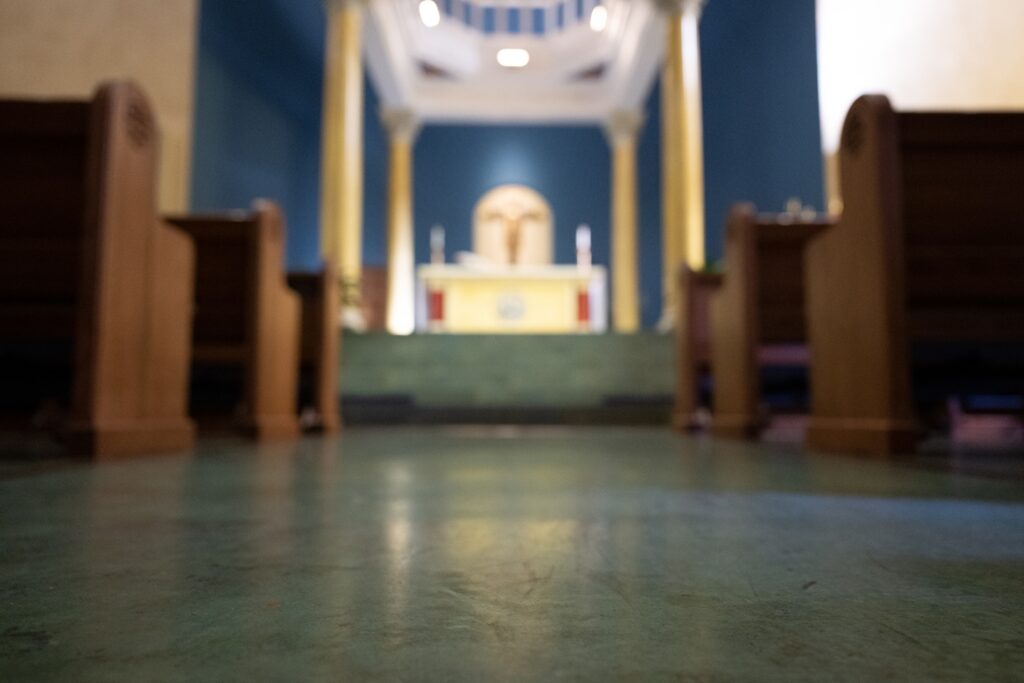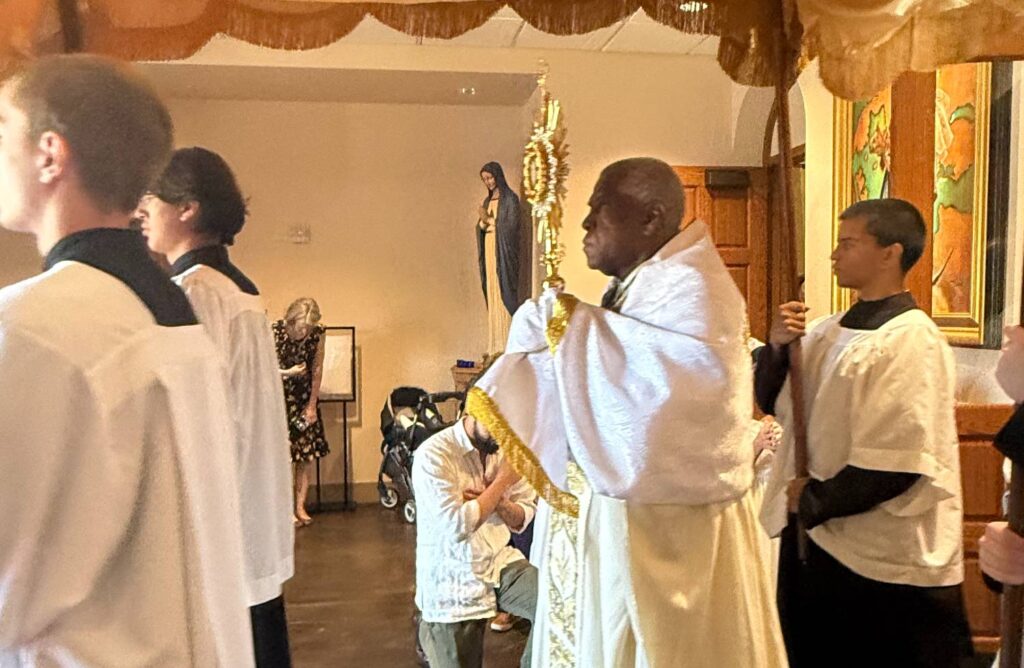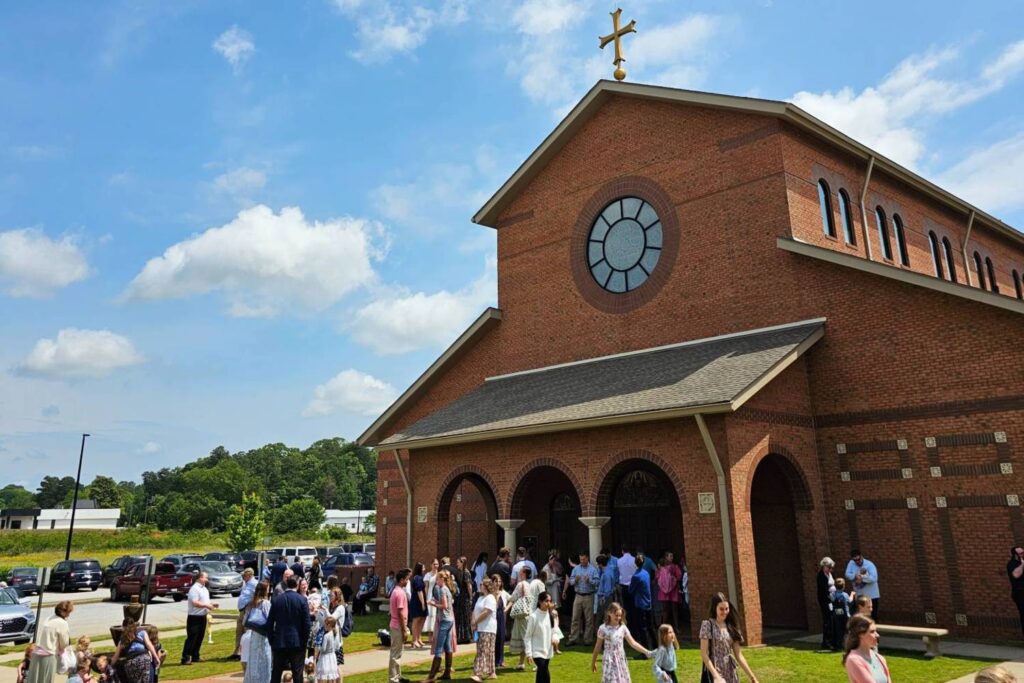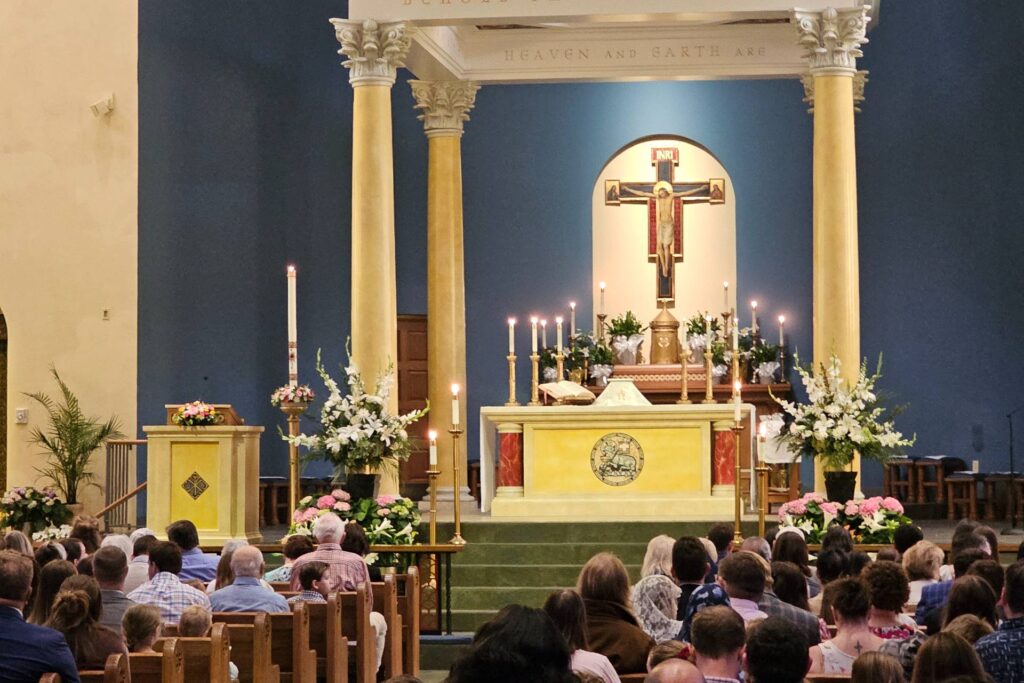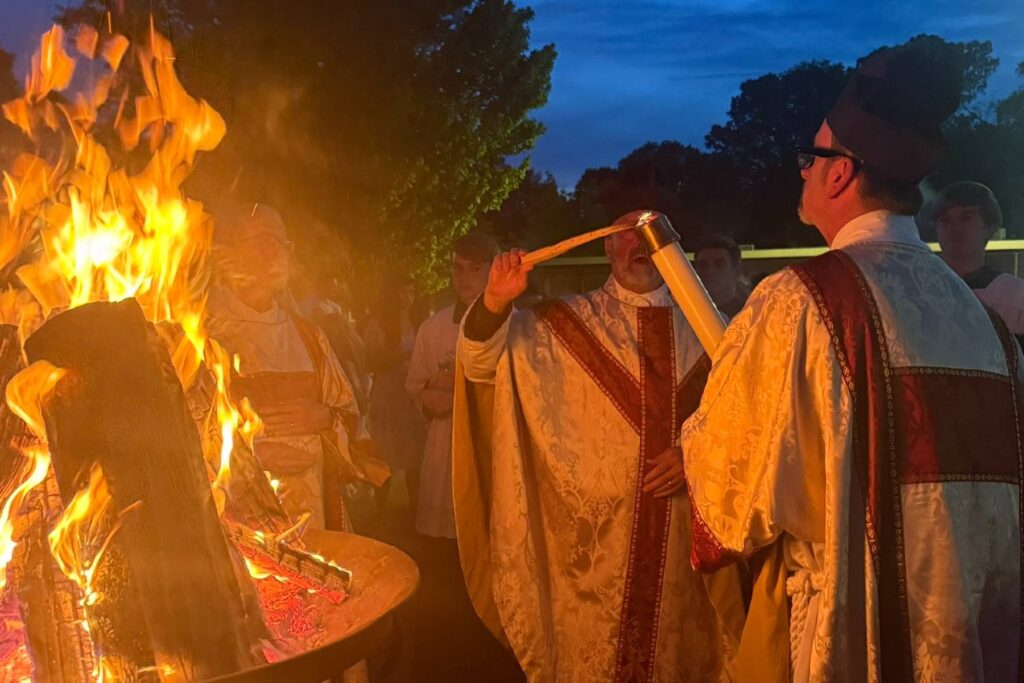This week the Pastor’s Letter is from Brian Hansen, Deacon in Training
Explaining the Ministry of Lector
By way of introduction, I am a long-time parishioner of Our Lady of the Rosary Parish and a candidate for the Permanent Diaconate. God willing, I will be ordained as a deacon for the Diocese of Charleston in February 2026.
Formation for the Permanent Diaconate in our diocese is a five-year process involving a period of discerning God’s calling followed by formal education leading to a Master of Arts degree in theology, along with ministry-focused courses facilitated by members of the clergy. Along the path to ordination, candidates for the permanent diaconate pass through the ancient rites of Candidacy, Lector, and Acolyte. This month, I begin my third year of the five-year journey and I will be receiving the Ministry of Lector conferred by the Bishop of Charleston.
The Ministry of Lector is rooted in church tradition as one of the minor orders of the ancient church and is conveyed to all candidates for ordination still today. In the ancient church, one passed through the hierarchical orders of porter, lector, exorcist, and acolyte along his progression to ordination. Only after holding each of these offices could an aspirant to the priesthood be ordained in the hierarchical orders of sub-deacon, deacon, and finally presbyter.
Lectors in the ancient church read all the scripture for the Mass, including the Gospel. They sometimes even expounded on what they read (these were not homilies. Bishops were responsible for homilies). Lectors also kept and protected the sacred books on behalf of the church.
In a society where not all could read, being a lector involved a higher standard of education than most church offices. Lectors were therefore respected and set apart from other laypeople. Perhaps the first written mention of lectors in the church was by Saint Justin Martyr in his First Apology during the second century AD. We know from Saint Justin that the office of lector was honorable and dignified, and that lectors were instituted through prayers and ceremony.
Through history, the office of lector has evolved. Gradually, reading the Gospel became a deacon’s duty, and after the Second Vatican Council, Pope Paul VI transformed and modernized the ancient orders. In the modern Latin Rite church, only the ministries of lector and acolyte remain. The positions are no longer called “orders” (In fact, lector and acolyte have never been conferred through ordination) and are no longer considered formal church offices. The ancient orders now exist as two new ministries: lector and acolyte, which are open to all laypeople and are no longer reserved just for ordination candidates. They remain, however, traditional steppingstones for those in the ordination process.
According to today’s liturgy for the institution of lectors: “The lector is responsible for reading the Scriptures (except for the Gospel) during the liturgical assembly. The lector may also direct the singing and present the general intercessions when the deacon is absent. The lector may also prepare another member of the faithful to read the Scriptures on a temporary basis.”
Bishop Jacques Fabre-Jeune will convey the Ministry of Lector to all twelve members of the diaconal ordination class of 2026 at an afternoon Mass on October 28, at Our Lady of the Hills Parish in Columbia. During the rite, each candidate will hold a lectionary in turn, and the Bishop will say the words: “Take this book of holy Scripture and be faithful in handing on the word of God, so that it may grow strong in the hearts of his people.” I am honored and joyful as I receive the Ministry of Lector and as I pursue my calling to serve the Church of Christ though word, liturgy, and charity.
May Christ’s peace be with you all.
